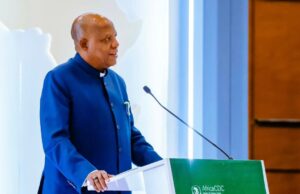
An international accounting firm was given a sole-sourced contract by the Ford government to create a digital tribunal system, CityNews has learned, with a price tag that sources say has ballooned from less than one million to more than $26 million.
PricewaterhouseCoopers (PwC), first signed more than three years ago, was to develop and implement a new digital online tribunal system for the Landlord Tenant Board.
Sources say the contract swelled to over $26 million through change orders and add-on contracts.
PwC is primarily an accounting firm with little history in developing software.
When asked by CityNews why the contract was not put to tender so software development specific companies could bid on it to ensure the best deal for taxpayers, Attorney General Doug Downey said: “Lots of choices to be made, we went with those who had the experience and had a product that was actually operating and operating very well.”
Downey was referring to the fact that PwC worked to develop the Civil Resolution Tribunal case management system for the British Columbia government, though sources say what PwC has been tasked with doing at Ontario’s Landlord Tenant Board is much greater in scope.
Sources also tell CityNews that ministry and tribunals staff have been unhappy with the work provided by PwC, with timelines and milestones being repeatedly delayed, and costs growing.
But when asked about quality of work, Minister Downey contended “It’s working well.”
While PwC’s work on this file was noted in public accounts, it’s never been detailed in any of the ministry’s annual reports or mentioned publicly.
It’s the latest example of the Ford government sole-sourcing a contract.
It was first reported by City News in January that the government had awarded Staples a deal to house nine ServiceOntario outlets as part of a contract that was also not put to tender, this, despite Premier Ford having repeatedly spoken out against such sole-sourced government contracts.
“I don’t know why Doug Ford hasn’t learned his lesson yet,” said NDP leader Marit Stiles, who said the deal should have been put to public tender.
“We want to know that we’re getting the best deal. Certainly, we want to see funding for the Landlord Tenant Board, but I wonder why the government continues to do business like this.”
The Landlord and Tenant Board is tasked with resolving disputes between residential landlords and tenants, as well as dealing with eviction applications and hearing from tenants seeking to compel their landlords to make needed repairs.
It’s been plagued with delays since 2018. In May 2023, Ontario’s ombudsman released a report finding that a backlog of cases has grown to 38,000 and it is taking an average of seven or eight months – sometimes up to two years – for a hearing to be scheduled.
The latest data shows the average wait for an order on eviction is now 342 days, compared to 32 days in 2018.
But Minister Downey contended the new software which digitizes much of the process is working well.
“It’s helping us take down the backlog, we come to balance in several of our tribunals,” he said.
When asked about the sole-sourced nature of the contract with PwC, Andrew Kennedy, spokesperson for the Attorney General said, “the process was conducted in line with the appropriate public service procurement directive.”







